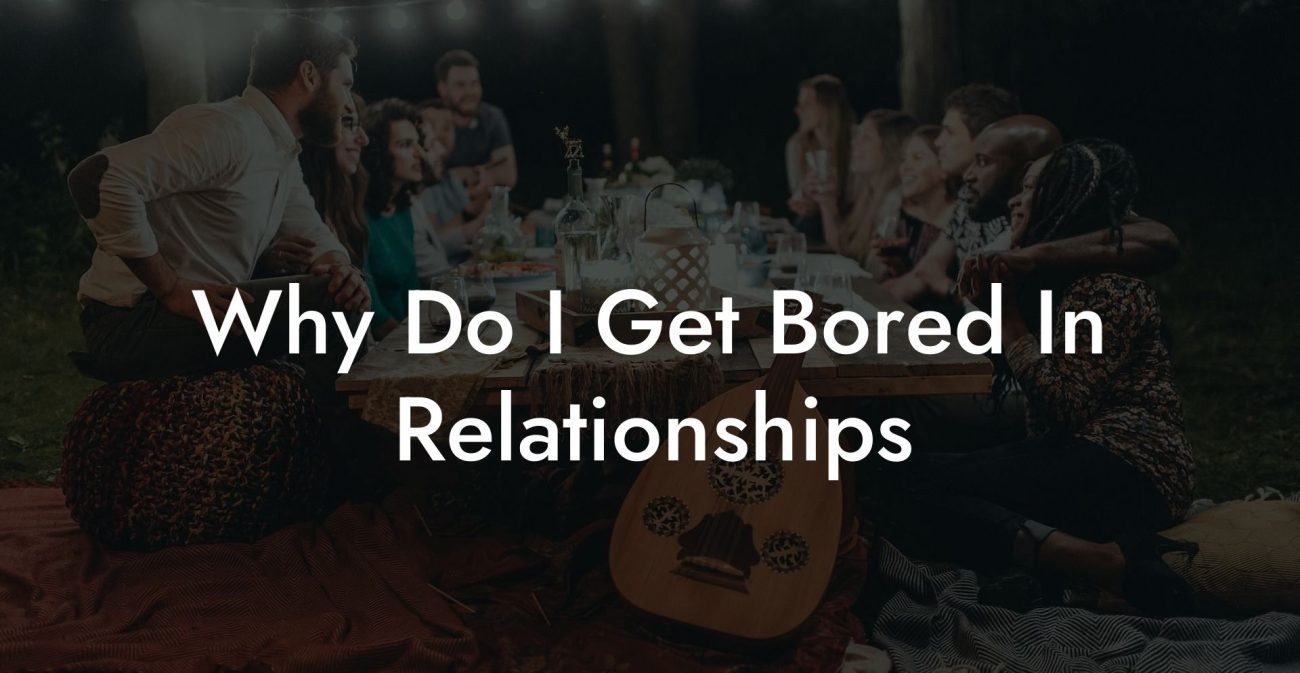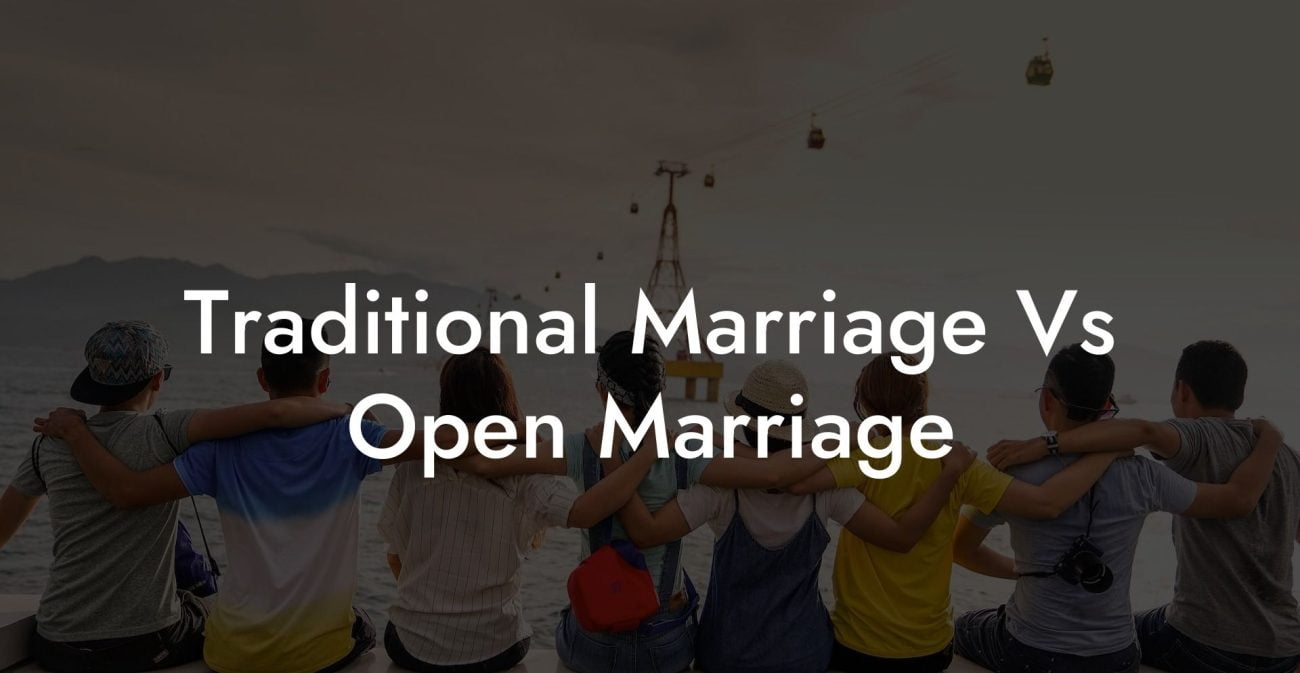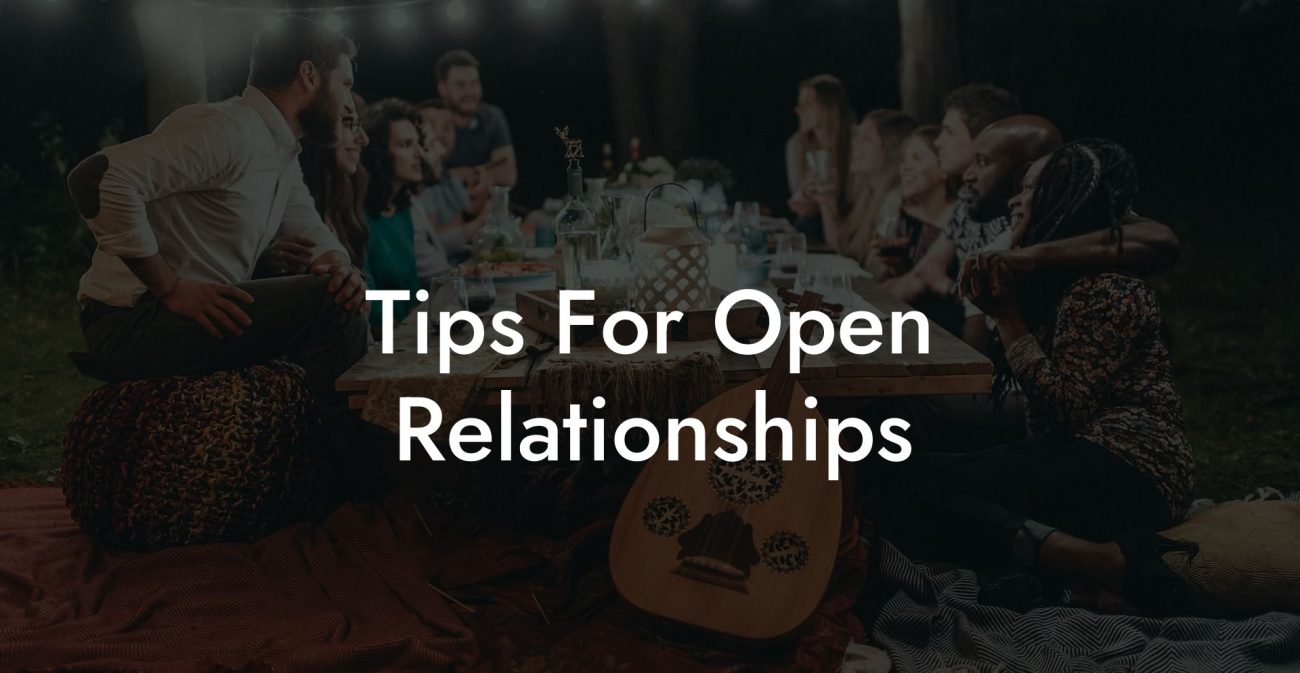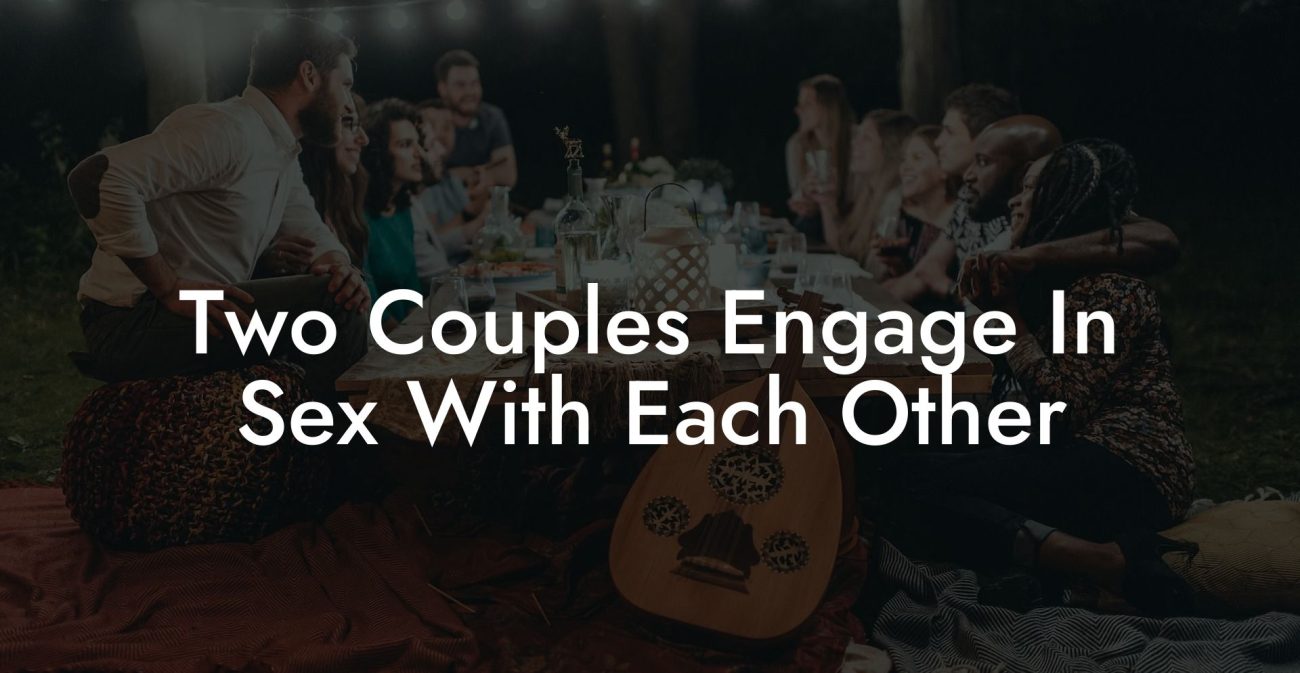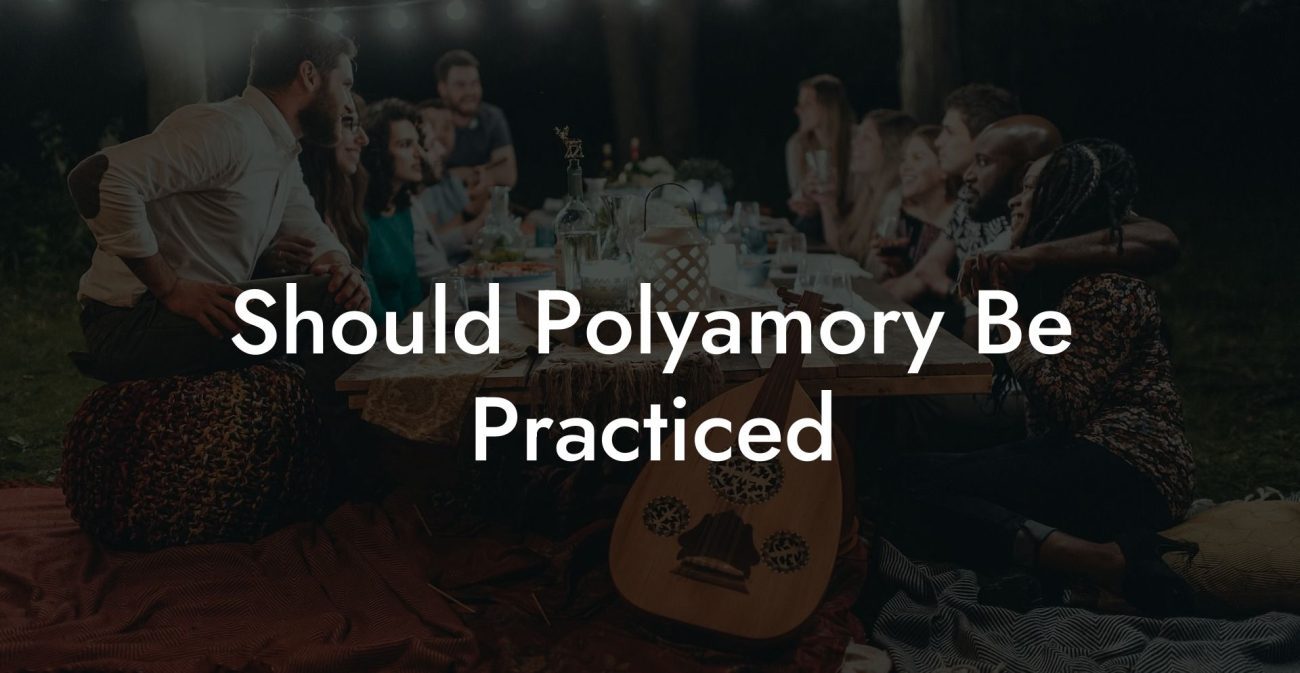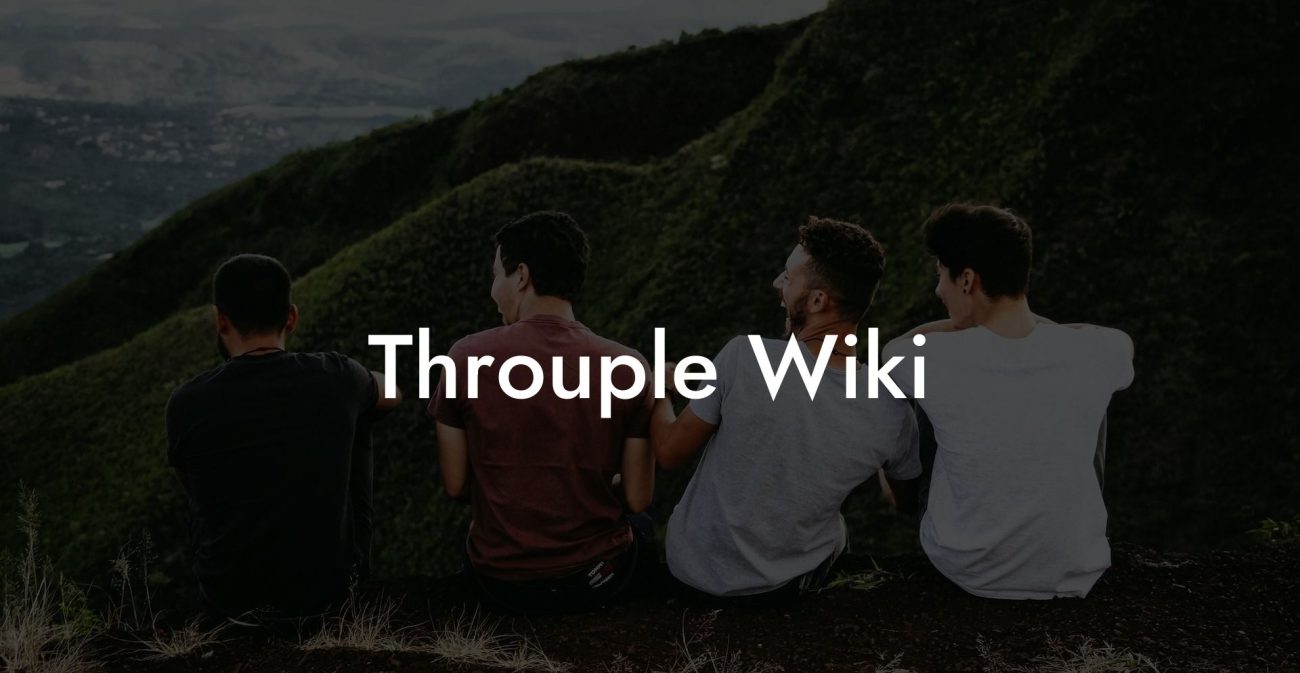Guide to Can A Monogamous Person Date A Polyamorous Person?
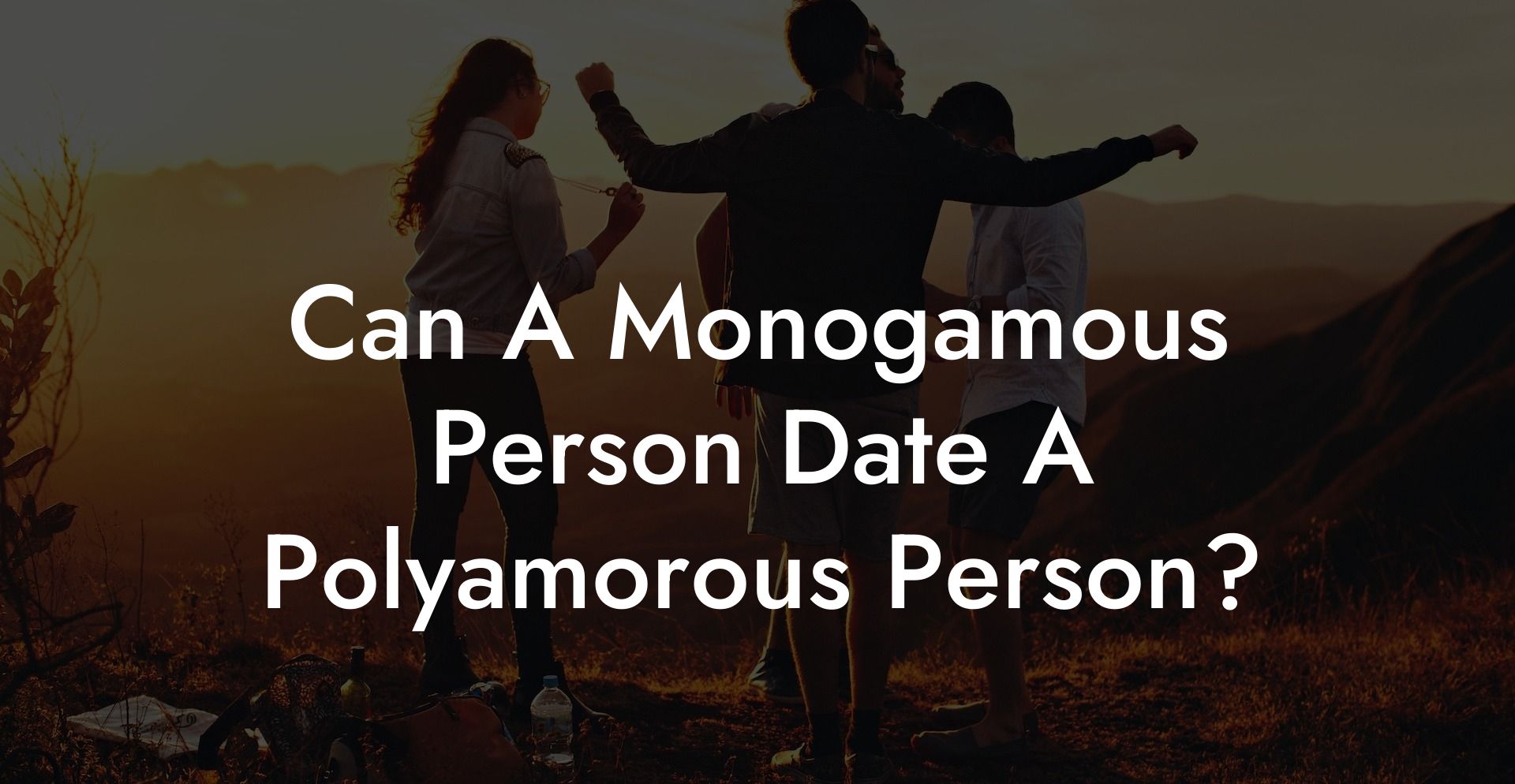
In today’s rapidly evolving relationship landscape, the question “Can a monogamous person date a polyamorous person?” is more relevant than ever. Whether you’ve always believed in exclusive, one-on-one love or you’re curious about the possibility of exploring multiple connections, this comprehensive guide is designed to help you navigate the exciting (and sometimes challenging) terrain where monogamy and polyamory intersect. With honest insights, practical tips, and a dash of humor, we’ll explore what it means to blend these two relationship styles and how you can create a fulfilling partnership that honors both your needs and those of your partner.
Have you ever wondered if monogamy is just a stupid little experiment? Open relationships, polyamory, relationship anarchy...find out which relationship dynamic suits you best with our one minute relationship test. See if you are just conforming to "societal norms". Reveal your truth >>
Quick Links to Useful Sections
- Understanding the Basics: Monogamy vs. Polyamory
- monogamy: The Traditional Commitment
- Polyamory: Embracing Multiple Connections
- Compatibility Challenges and Opportunities
- When Worlds Collide: Key Differences in Relationship Philosophies
- Common Concerns: Jealousy, Time Management, and Emotional Needs
- Communication: The Bridge Between Different Relationship Styles
- The Importance of Open Dialogue
- Discussing Boundaries and Expectations
- Benefits of Inter-Style Dating: Learning and Growing Together
- Expanding Your Horizons
- Finding Common Ground
- Practical Tips for a Successful Monogamous-Polyamorous Relationship
- Tip #1: Be Honest About Your Desires
- Tip #2: Create a Flexible Relationship Agreement
- Tip #3: Schedule Regular Check-Ins
- Tip #4: Educate Yourself and Each Other
- Tip #5: Embrace Compromise
- Tip #6: Seek Professional Guidance if Needed
- Real-Life Stories: When Monogamy Meets Polyamory
- Case Study: Emma and Alex
- Case Study: Jordan’s Journey
- Expert Insights and research Findings
- What Relationship Experts Say
- Research Insights
- FAQ: Your “Can A Monogamous Person Date A Polyamorous Person?” Questions Answered
- Resources and Community Support: Your Next Steps in Self-Discovery
- Top Books, Podcasts, and Blogs
- Therapy and Counseling
Understanding the Basics: Monogamy vs. Polyamory
monogamy: The Traditional Commitment
Monogamy is the conventional relationship model where two people commit exclusively to each other. It’s built on the promise of undivided emotional and physical intimacy, fostering deep, singular bonds over time. For many, monogamy represents stability, security, and the beauty of investing fully in one person. When you hear terms like exclusive love or long-term commitment, you’re often hearing about monogamy.
In a monogamous relationship, both partners typically share the majority of their lives together—emotionally, socially, and practically. The focus is on building trust, creating a shared future, and nurturing a deep, intimate connection.
Polyamory: Embracing Multiple Connections
Polyamory, by contrast, is the practice of engaging in multiple romantic or sexual relationships simultaneously, with the informed consent of everyone involved. Rather than viewing love as a finite resource, polyamorous individuals believe that the heart has an endless capacity for connection. This approach is defined by its emphasis on open communication, negotiation of boundaries, and the idea that each relationship can offer something unique.
Keywords like ethical non-monogamy, open love, and multiple relationships capture the spirit of polyamory. In polyamorous setups, partners may have varying levels of involvement with one another, and there is often an emphasis on ensuring that every connection is consensual, respectful, and genuine.
Compatibility Challenges and Opportunities
When Worlds Collide: Key Differences in Relationship Philosophies
The core difference between monogamy and polyamory lies in the concept of exclusivity versus openness. A monogamous individual may value singular, exclusive commitment, while a polyamorous person might thrive on diversity and multiple sources of emotional support. This divergence can create unique challenges if not acknowledged and addressed early in the dating process.
For example, a monogamous person might feel uneasy about their partner spending time with others, even if it’s strictly casual, whereas a polyamorous individual may see this as natural and enriching. Understanding these fundamental differences is the first step toward creating a mutually respectful relationship.
Common Concerns: Jealousy, Time Management, and Emotional Needs
Some of the most common concerns in a monogamous-polyamorous pairing include:
- Jealousy: Feelings of insecurity can arise when one partner’s expectations about exclusivity differ from the other’s. Addressing jealousy openly is crucial.
- Time Management: Balancing one-on-one time with a primary partner and additional connections can be challenging for both parties.
- Emotional Needs: Monogamous individuals often expect deep emotional bonding with one person, while polyamorous individuals may distribute their emotional energy across multiple relationships.
Recognizing these potential pitfalls early on allows both partners to work proactively on strategies to build trust and manage expectations.
Communication: The Bridge Between Different Relationship Styles
The Importance of Open Dialogue
In any relationship, communication is the cornerstone of success. However, when a monogamous person dates a polyamorous person, clear and honest dialogue becomes even more vital. Both partners need to articulate their needs, fears, and expectations without judgment.
Consider scheduling regular “relationship check-ins” where you discuss your feelings, assess how things are going, and adjust your boundaries if necessary. Using “I” statements and practicing active listening can help ensure that each partner feels heard and validated.
Discussing Boundaries and Expectations
Setting clear boundaries is a proactive way to prevent misunderstandings. For a monogamous-polyamorous relationship, this might include:
- Time Allocation: Discuss how much time each partner expects to spend together versus with others.
- Emotional Availability: Clarify what emotional support looks like for each of you and how you can honor those needs.
- Transparency in Communication: Agree on how much information you’re comfortable sharing about other relationships and encounters.
These discussions should be ongoing and revisited as your relationship evolves.
Benefits of Inter-Style Dating: Learning and Growing Together
Expanding Your Horizons
One of the most exciting aspects of dating someone with a different relationship style is the opportunity for personal growth. Monogamous individuals can learn new communication techniques and become more open-minded about different forms of love. Meanwhile, polyamorous individuals might discover the depth and intimacy that comes from focusing on one primary connection.
This exchange of perspectives can lead to:
- Enhanced Empathy: Understanding different ways of loving can broaden your capacity for empathy and compassion.
- Personal Development: Navigating a relationship with diverse needs forces you to reflect on your values and priorities, which can lead to significant personal growth.
- Improved Communication Skills: Balancing different expectations necessitates a higher level of transparency and honesty, skills that benefit all areas of life.
Finding Common Ground
Despite their differences, monogamy and polyamory share a common foundation: the desire for connection, intimacy, and mutual respect. Many couples find that by focusing on these core values, they can bridge the gap between their differing relationship models. With mutual effort and commitment, it’s entirely possible for a monogamous person and a polyamorous person to build a satisfying, enriching partnership.
Practical Tips for a Successful Monogamous-Polyamorous Relationship
Tip #1: Be Honest About Your Desires
Honesty is essential. Both partners must be upfront about what they want from the relationship. This includes discussing your ideal scenarios, any concerns you have about jealousy, and how you envision handling time spent with other people.
Tip #2: Create a Flexible Relationship Agreement
Draft a relationship agreement that outlines your boundaries, expectations, and how you’ll handle potential challenges. This document doesn’t have to be set in stone—it can evolve as you learn more about what works for both of you.
Tip #3: Schedule Regular Check-Ins
Regularly set aside time to talk about your relationship. These check-ins are a chance to celebrate successes, address any issues, and adjust your boundaries if necessary. They help ensure that both partners remain aligned even as circumstances change.
Tip #4: Educate Yourself and Each Other
Read books, listen to podcasts, and join online communities that focus on both monogamy and polyamory. Gaining insights from others who have navigated similar dynamics can offer practical advice and reassurance.
Tip #5: Embrace Compromise
Recognize that no relationship is perfect. Be willing to compromise and adapt your expectations. Celebrate the differences and use them as opportunities to learn from one another.
Tip #6: Seek Professional Guidance if Needed
Don’t hesitate to reach out to a therapist or relationship coach who specializes in diverse relationship styles. Professional guidance can provide invaluable tools to help you navigate any challenges and ensure that both partners feel supported.
Real-Life Stories: When Monogamy Meets Polyamory
Case Study: Emma and Alex
Emma, who identifies as monogamous, and Alex, who practices polyamory, first met in a mutual friends’ gathering. Initially, Emma was drawn to the depth of one-on-one intimacy, while Alex valued the variety and growth that multiple connections offered. Through honest discussions and gradual boundary-setting, they found common ground. Emma discovered that she could enjoy the security of a deep primary connection while appreciating Alex’s openness to explore additional relationships. Their journey wasn’t without challenges—jealousy and time management required ongoing effort—but through regular check-ins and a commitment to transparency, they forged a partnership that celebrated both exclusivity and freedom.
Case Study: Jordan’s Journey
Jordan always identified as polyamorous but fell in love with Sam, a devoted monogamist. Despite their differing relationship styles, they were intrigued by each other’s perspectives. They began dating with clear expectations, openly discussing what each wanted from their relationship. Over time, they found that by focusing on shared values—like trust, honesty, and respect—they could navigate the complexities together. Jordan learned the beauty of deep emotional connection, while Sam discovered that a little openness could enrich their relationship. Their story highlights that love can thrive even when traditional labels are challenged.
Expert Insights and data-statistics-ethical-non-monogamy-open-relationships-polyamory/" target="_blank">research Findings
What Relationship Experts Say
Relationship experts emphasize that compatibility in a monogamous-polyamorous pairing hinges on communication and mutual understanding. Dr. Elena Rivera, a therapist specializing in diverse relationship models, notes, “When both partners are willing to engage in honest dialogue and set clear expectations, differences in relationship style can actually enhance the bond by bringing in fresh perspectives and growth opportunities.”
Meanwhile, relationship coach Marcus Lee adds, “The key is not to force either party into a mold they don’t fit. It’s about finding the balance that works for both—and that often means embracing compromise and ongoing self-reflection.”
Research Insights
Emerging studies in the field of relationship dynamics indicate that couples who navigate differing relationship styles successfully often report:
- Higher levels of communication: Regular and honest discussions are linked to increased relationship satisfaction.
- Personal growth: Exposure to diverse relationship models can lead to enhanced self-awareness and emotional maturity.
- Stronger conflict resolution skills: Couples who manage differences effectively tend to develop robust strategies for handling conflict.
These findings suggest that while the road may be complex, the potential rewards in personal and relational growth are substantial.
FAQ: Your “Can A Monogamous Person Date A Polyamorous Person?” Questions Answered
1. Can a monogamous person really date a polyamorous person?
Yes, it’s entirely possible for a monogamous person to date a polyamorous person. The key is open communication, mutual understanding, and clear boundary-setting.
2. What are the biggest challenges in such a relationship?
Common challenges include differing expectations about exclusivity, managing jealousy, and balancing time among multiple connections. Addressing these issues requires ongoing dialogue and compromise.
3. How can a monogamous person feel secure in a relationship with a polyamorous partner?
Security comes from open, honest communication and regular check-ins. Establishing clear boundaries and discussing your emotional needs can help both partners feel more secure.
4. What if jealousy arises?
Jealousy is natural. When it arises, address it through honest conversations, self-reflection, and, if necessary, professional guidance. Regular check-ins can help manage these feelings constructively.
5. How do we balance time between a monogamous partner and other relationships?
Time management is crucial. Discuss and agree on a schedule that respects both partners’ needs, and use tools like shared calendars to ensure clarity.
6. Is it possible for a polyamorous partner to meet the emotional needs of a monogamous partner?
Yes, if both partners are willing to communicate their needs and negotiate boundaries that work for them, a polyamorous partner can certainly meet the emotional needs of a monogamous person.
7. What should I do if I’m feeling confused about my relationship style?
Take time to reflect on your values and emotional needs. Journaling, self-assessment tools, and conversations with trusted friends or a therapist can provide clarity.
8. How important is it to discuss relationship expectations early on?
Extremely important. Early and honest discussions about your expectations and boundaries set the foundation for a healthy relationship, regardless of the dating style.
9. Can differences in relationship style be overcome?
Absolutely. With mutual effort, clear communication, and a willingness to compromise, many couples successfully navigate the differences between monogamy and polyamory.
10. Where can I find more resources on this topic?
Books like "The Ethical Slut" and "More Than Two", podcasts such as “Multiamory,” and online communities on Reddit and Facebook offer a wealth of information and personal stories that can help you understand and navigate these relationship dynamics.
Resources and Community Support: Your Next Steps in Self-Discovery
Top Books, Podcasts, and Blogs
To further explore your relationship style and find the path that resonates with you, consider these resources:
- "The Ethical Slut" by Dossie Easton & Janet Hardy – A classic guide to non-traditional relationships.
- "More Than Two" by Franklin Veaux & Eve Rickert – A deep dive into polyamory and personal growth.
- Podcasts: "Multiamory" and "The Polyamory Podcast" offer real-life insights and expert advice on diverse relationship models.
- Online Communities: Join forums like r/polyamory and other social media groups to share experiences and gain support.
Therapy and Counseling
Consider consulting a relationship therapist or coach who specializes in both monogamous and polyamorous dynamics. Professional guidance can help you navigate your feelings, address challenges, and build a relationship that aligns with your authentic self.
With the right mix of self-reflection, resources, and open communication, you can confidently determine whether you lean more towards monogamy or polyamory—and build a love life that truly reflects who you are.
Lost & confused by all of the terms, types and seemingly made up 3 letter acronyms?? We've got you. Check out our Ethnical Non-Monogamy Dictionary >>
Useful Interruption: Not sure which relationship vibe fits you best? Take our Relationship Test, it’ll give you the real insight into your natural relationship style. Then, dive into our binge-worthy guides (from the tried-and-true to the “wait, that’s a thing?”) and find the perfect relationship type for your life:
- Monogamy
- Open Relationships
- Ethical Non-Monogamy
- Solo Polyamory
- Non-Hierarchical Polyamory
- Hierarchical Polyamory
- Relationship Anarchy
- Swinging
Now back to the main article but yeah take the test...






